In 1830, when the first known patent application for a lawnmower was submitted, it couldn’t have been imagined how far that piece of equipment would evolve. Such evolution is not limited to mowers, however—and extends to virtually all aspects of turf care and landscape maintenance today. That first lawnmower patent was submitted by Edwin Budding, a mechanic in Britain. But the ingenuity around that piece of equipment and the vast number of innovative products that we’ve seen developed since spans the globe.
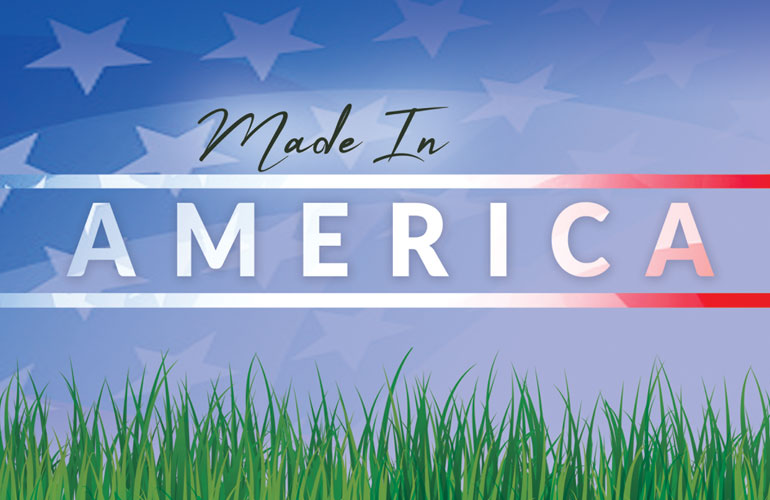
The internationally-recognized turfgrass scientist, Dr. James B Beard, says, “It is evident that for many, many hundreds of years, man has been willing to invest time and money in improving turfgrasses to achieve better functional, recreational, and aesthetic benefits. Why? Basically, turfgrasses were developed by modern civilizations in order to enhance the quality of life of humans. The more technically advanced a civilization, the more widely turfgrasses are used.”
What’s more, he adds, “Grasses have effectively functioned in protecting our environment for centuries.”
In “The Evolution of Turfgrass Sod,” Dr. Beard shared his extensive research into the story of the lawn’s role in fulfilling these functions. As Beard reported, “The first mechanical lawn mower was invented by Edwin Beard Budding in 1830. Invention of an effective mechanical mowing device allowed more extensive use of mowed turfgrass areas as part of ornamental gardens and larger recreational areas such as parks, the latter allowed less affluent persons to enjoy mowed lawns.”
By 1890, the mass production of mechanical mowers at an affordable price made them available to the public. Beard says, “This was an era in which numerous trial-and-error approaches were attempted by practitioners to develop specific turfgrass cultural practices to improve the density and functional performance for sports, recreational, and ornamental uses.”
Highlighted in this article are several companies in the industry that have grasped the opportunity to bring their products to the market in the United States and are continuing to grow their businesses. We welcome readers—product manufacturers, service providers, lawn and landscape contractors, and others—to share their Made In America connections.
If you have a story to share, send a brief overview of your firm’s background to the email address listed at the end of this article.
Ecologel: Water Conservation Tools Come To America
Based in Ocala, FL, Ecologel Solutions, LLC is a manufacturer specializing in environmentally responsible chemistries for commercial and residential application in the areas of agriculture, lawn care and surface coatings. Ecologel’s products focus on drought mitigation, dust control, fertilizers and nutrients, and algae blockers, as well as advanced hormone growth regulators for the turf care industries.

Ecologel’s story actually begins outside of the U.S., with a chemist in Australia developing a unique approach to dust mitigation. This product, GelTrak®, utilizes humidity and soil moisture to minimize dusting and reduced the need for frequent watering on dirt roads, construction sites, arenas, and the like.
During a dry spell, this chemist, Ron Hansen, tried GelTrak on his home lawn. After six weeks of drought, the treated section of lawn maintained its health and color while the remaining turfgrass turned brown. Hansen learned that when applied to turf and landscape plants, this same base chemistry utilizes soil moisture to minimize plant wilt and reduce the need to water lawns and gardens.
At this time, Rick Irwin, President of Ecologel Solutions today, was working with Hansen to promote several of the chemist’s industrial coating products for Irwin’s company in the U.S. “Ron introduced me to Hydretain when I commented that Florida was in the midst of a severe drought,” explains Irwin. “Although water conservation had not yet become a significant topic of conversation, as it is today, I felt that this product had tremendous potential to improve landscape quality, particularly during dry periods or prolonged drought.”
This was the genesis of Ecologel’s Hydretain product. In the 1990s, Hydretain was brought to the U.S., and tested at the University of Florida, where it was proven to reduce the watering requirement for ornamental plants.
“After initial testing at the University of Florida proved Hydretain’s efficacy on bedding plants, I formed Ecologel USA, Inc. to move forward with manufacturing and marketing of Hydretain in the United States,” says Irwin. “ After a few years of development, and with the use of U.S.-based raw materials, we were able to strengthen Hydretain to be cost-effective for large scale turf applications. In 2012, we further developed the technology by working with U.S.-based granular formulators to develop granular options designed to improve application flexibility for landscape contractors.”
In 2008, Ecologel acquired the BioPro line (developed by The Toro Company in 1994), and today the line represents nearly 30 NPK blends, biostimulants, soil remediation products, and micronutrients that are manufactured in central Florida.
Last year, Ecologel partnered with Arborjet, Inc. which also has products manufactured in the U.S., including a recent advancement in trunk injection technology. The QUIK-jet Air® is machined in Woburn MA, near the Arborjet office and assembled in Woburn as well.
Of this partnership, Russ Davis, CEO of Arborjet and Ecologel Solutions, says, “We were always impressed with the Ecologel technology and by combining Hydretain and CytoGro with other tree specific products, we were able to build a very high quality product for planting trees, shrubs and other plants. NutriRoot, was the first product we built together; this product is also made in the U.S. Several years later, in 2017, we began talking about our synergies. In early 2018 we came to an agreement on a full service plant-health partnership.”
Altoz: A Mower Whose Time Had Come
Headquartered in Greenbush, MN, Altoz, Inc., is a mower manufacturer relatively new to the market. Five years ago, the company entered the outdoor power equipment market by introducing its line of 15 wheeled zero-turn mowers at GIE+EXPO. The Altoz XC, XP, XE, and XR mowers comprise the company’s wheeled mower line today, and in 2017 Altoz introduced the TRX, the world’s first tracked zero-turn mower. Two models have been added to the TRX line in 2019. Featuring chassis, suspension, engine, and transmission specific to the tracked design, the TRX mowers provide the ability to mow on steeper inclines or over soft terrain that wheeled mowers may not handle safely or efficiently.
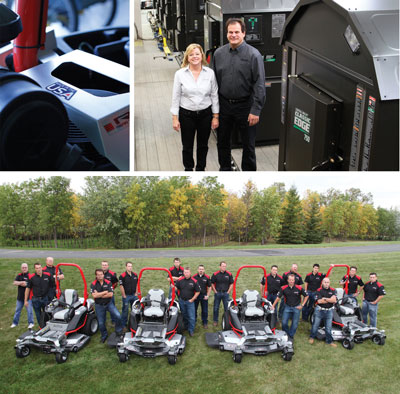
Before launching Altoz, Dennis and Terri Brazier already owned Central Boiler, a successful outdoor furnace company they established in 1984. Born and raised in northwest Minnesota, Dennis was following his lifelong interest in outdoor power equipment (in fact, he built his first zero-turn mower before the boiler business). Altoz was founded with a fundamental goal of delivering something different to the market, and the company’s mowers are engineered and crafted with cutting edge features and styling.
Karl Bjorkman, sales and marketing director at Altoz, says, “We manufacture commercial mowers that are used by municipalities, government entities, commercial cutters, multi-acre homeowners or farmers who are working in areas that may be more rugged than a typical suburban lawn. We’ve designed mowers with features to handle that.”
The region in and around Greenbush is one familiar to the outdoor power equipment industry, with well-known industry players operating in northwest Minnesota. As a homegrown company, Altoz leadership puts high importance on supporting the local communities, and that includes employees and their families.
Turning back to the equipment, the engineering, R&D, and field testing are done in-house, says Bjorkman. The company’s headquarters and manufacturing facility is 300,000 square feet, with 250 employees.
Delta Systems: OEM Supplier For America’s Landscape
Headquartered in Streetsboro, OH, Delta Systems, Delta Systems is a component supplier that designs and manufactures switches and electronic components for leading outdoor power equipment manufacturers. The company’s origins go back to 1972 when James A. Barry began designing and building switches for niche markets, mainly the outdoor power industry. The early operation was in a small garage with eight employees; today Delta Systems occupies a 133,000 square foot facility in Streetsboro, with 200 employees.
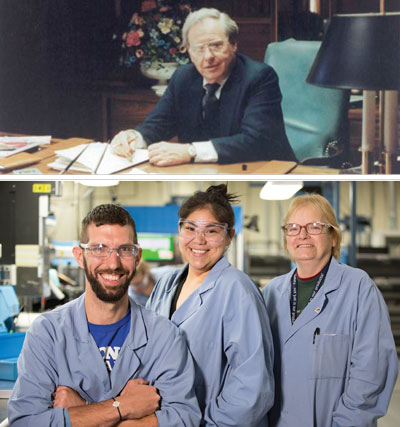
Company leadership briefly considered moving overseas several years ago and ultimately decided that “overseas manufacturers were unable to achieve the level of quality and consistency that we achieve in our Ohio facility. Overseas manufacturers were also not able to offer a price improvement, validating the excellent work that we’ve achieved here in the U.S.”
Delta aims to focus on the development of its employees, for the overall health of the company. Employees are offered educational reimbursement, and there are also summer internship programs for local high schools and co-op engineering programs to college students. “It sharpens all of our skills, and we are fortunate to be able to provide these opportunities,” says the company.
“These activities support one of our foundational cornerstones, which is ‘collaboration.’ We have a shared commitment of pulling together as a team for each other, our customers and our community.”
Looking ahead as Delta Systems approaches 50 years in business, the company is pushing toward electrification.
“Listening to our customers and our own market research, most mower manufacturers either have battery-powered units or have them in their product planning,” shares the company. “As a leading solution supplier to all of the major OEMs, we have decided to make complementary versions for all of our key components, including PTO switches, ignition switches, advanced displays that will be compatible with 48V systems. We’ve been in the OPE business for more than 45 years, and we’ve honed a design-thinking approach with our customers, working closely with them to bring these new visions to fruition.”
Looking Forward
As stated by Dr. Beard in The Journal of Environmental Turfgrass, “Through education about proper turf grass selection, irrigation equipment selection and use, man can also realize increased benefits from turfgrass. That little grass plant most of us take for granted may help make this planet more liveable, especially if we learn to give it a chance to give us all of the benefits it is capable of.” And it’s interesting to see what Made in America equipment is capable of with the right mix of knowledge, ingenuity, and experience.
Cosgrove is Editor-in-Chief of Turf magazine and is interested in hearing from product and service providers, as well as lawn care operators and landscape contractors about their Made In America background stories. Send an email to acosgrove@groupc.com.
Do you have a comment? Share your thoughts in the Comments section below or send an email to the Editor at acosgrove@groupc.com.











![[VIDEO] Dickies®: Discover Workwear That’s Anything But Uniform](https://turfmagazine.com/wp-content/uploads/2023/06/1647663814-4b1a2a7742790a9b1e97a3b963477850192e1d6a9dfba9b07214a77bae25d6e3-d-218x150.jpg)



























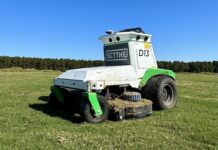
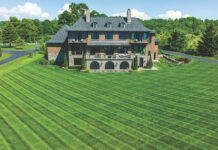
![[VIDEO] Dickies®: Discover Workwear That’s Anything But Uniform](https://turfmagazine.com/wp-content/uploads/2023/06/1647663814-4b1a2a7742790a9b1e97a3b963477850192e1d6a9dfba9b07214a77bae25d6e3-d-324x160.jpg)